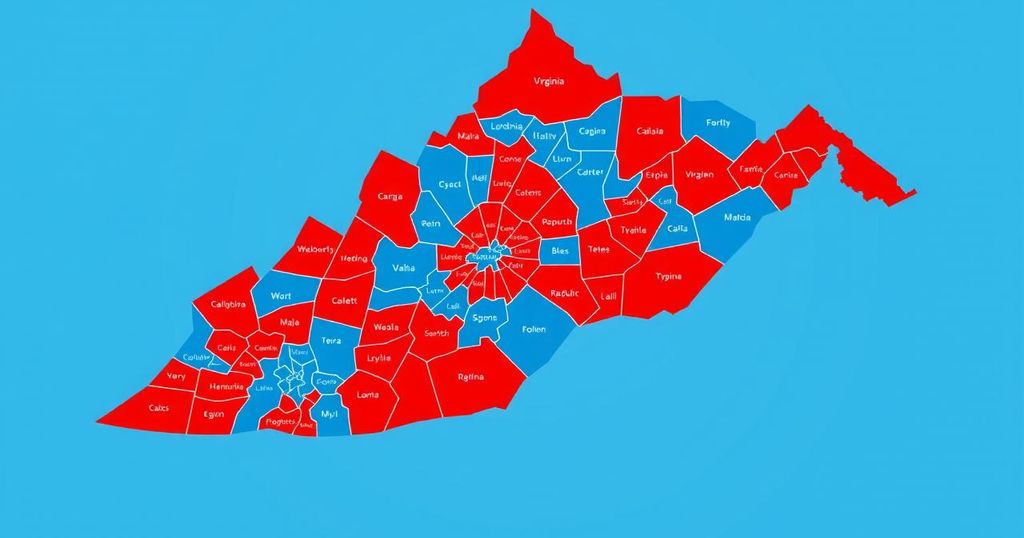Significance of Virginia’s 2025 Gubernatorial Election as National Focus

Virginia’s 2025 gubernatorial election is crucial, being one of only two state elections that year. The state’s recent Democratic trend contrasts with its historical Republican support, making the election pivotal, especially given the current Republican presidency. Early polling suggests a potential Democratic advantage, yet past close races indicate uncertainty ahead.
As Virginia prepares for its crucial 2025 gubernatorial election, national eyes are focused on the Commonwealth. Only Virginia and New Jersey will hold gubernatorial elections that year, with Virginia’s outcome potentially more consequential due to its recent political trends. Historically, New Jersey has leaned Democratic, having not elected a Republican senator since 1972 and favoring Democratic presidential candidates since 1988, although it did elect Republican Chris Christie as governor in 2009 and 2013.
Virginia’s political landscape, in contrast, has seen a shift toward Democratic leadership. The state consistently voted for Republican presidential candidates from 1968 until 2004 but began to lean Democratic in 2008. Since then, Virginia has elected Democratic governors and U.S. senators, with Democrats Mark Warner and Tim Kaine winning consecutive Senate terms from 2008 to 2012.
Virginia’s unique tenure law prevents governors from serving consecutive terms, leading to a pattern where the state often elects governors from the opposite party of the sitting president. Between 1977 and 2013, this trend was consistent, making the upcoming election especially significant given the backdrop of a Republican administration under Donald Trump. While Virginia voted for Democrats in the last two presidential elections, the election of Republican Glenn Youngkin in 2021 showcased its role as a key battleground state.
Current approval ratings for President Trump hover around 40%, according to Pew Research, which could give Democrats an advantage in 2025. Abigail Spanberger, the Democratic nominee, appears to be leading in many early polls. Still, Virginia has a history of close races; for instance, both the 2013 and 2021 gubernatorial contests were decided by razor-thin margins, under three percentage points.
Polls can fluidly change, and history has shown that leads can evaporate quickly. In 2013, Terry McAuliffe, the Democratic governor candidate, enjoyed a healthy lead only to face a tighter election than anticipated. Similarly, in 2021, he maintained a polling lead until late October when the race shifted in Youngkin’s favor.
As early voting kicks off in Virginia for the primary elections, both parties must be strategizing their campaigns carefully. The implications of the 2025 gubernatorial race are significant not just for Virginia but also nationwide, shaping strategies for the subsequent 2026 Senate and House elections. With much on the line, campaign dynamics will be worth watching in the lead-up to this pivotal election.
The 2025 Virginia gubernatorial election is pivotal, with its outcomes potentially impacting national political trends. Election history indicates Virginia’s tendency to swing against incumbent presidents, which may favor Democratic candidates given current political sentiments. The race remains unpredictable, with polling data subject to rapid change, highlighting the need for strategic recalibration by both parties. This election is not just about local governance; it shapes the larger narrative for upcoming federal elections.
Original Source: www.wsls.com








